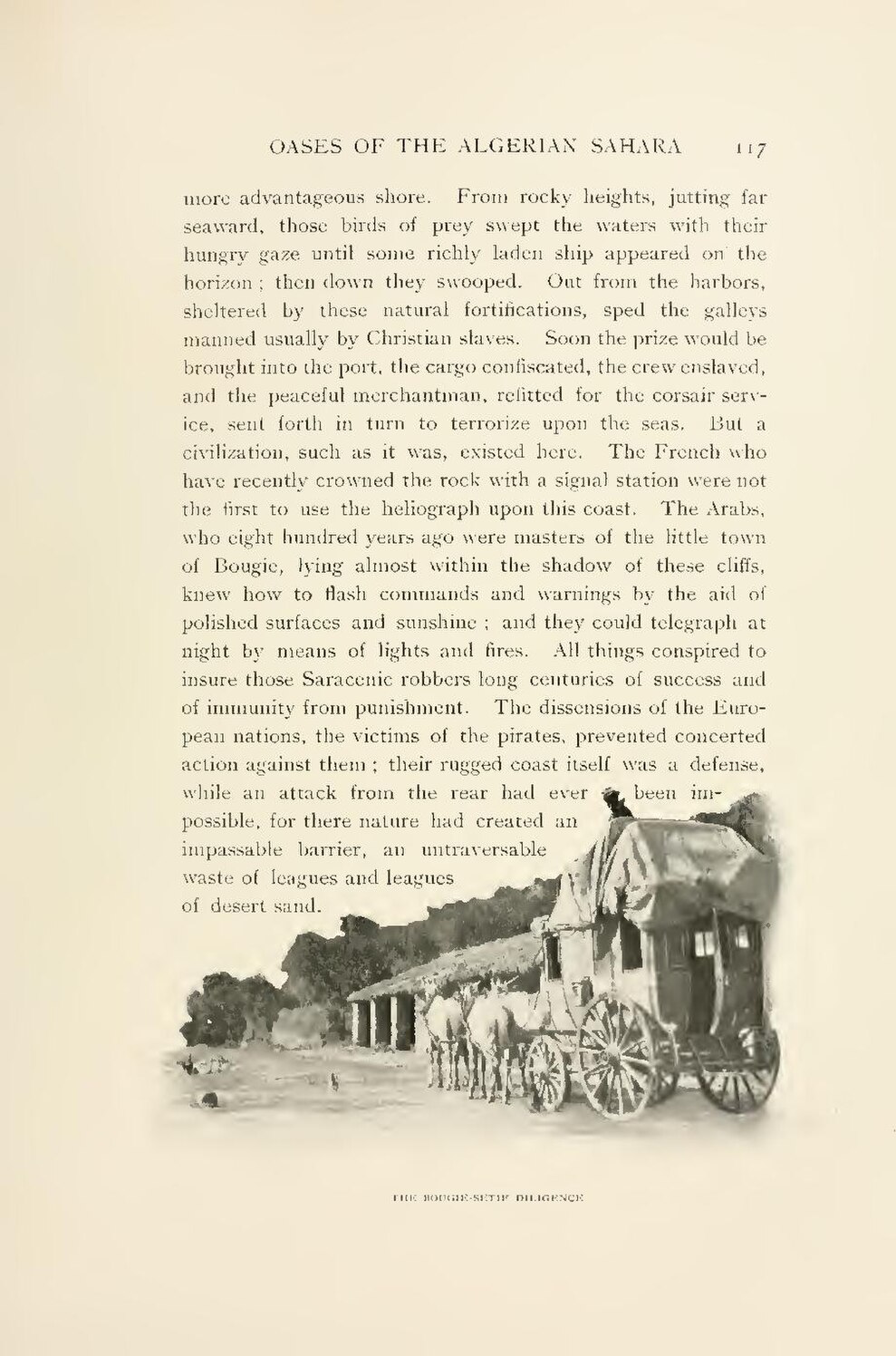more advantageous shore. From rocky heights, jutting far seaward, those birds of prey swept the waters with their hungry gaze until some richly laden ship appeared on the horizon; then down they swooped. Out from the harbors, sheltered by these natural fortifications, sped the galleys manned usually by Christian slaves. Soon the prize would be brought into the port, the cargo confiscated, the crew enslaved, and the peaceful merchantman, refitted for the corsair service, sent forth in turn to terrorize upon the seas. But a civilization, such as it was, existed here. The French who have recently crowned the rock with a signal station were not the first to use the heliograph upon this coast. The Arabs, who eight hundred years ago were masters of the little town of Bougie, lying almost within the shadow of these cliffs, knew how to flash commands and warnings by the aid of polished surfaces and sunshine; and they could telegraph at night by means of lights and fires. All things conspired to insure those Saracenic robbers long centuries of success and of immunity from punishment. The dissensions of the European nations, the victims of the pirates, prevented concerted action against them; their rugged coast itself was a defense, while an attack from the rear had ever been impossible, for there nature had created an impassable barrier, an untraversable waste of leagues and leagues of desert sand.
An image should appear at this position in the text. To use the entire page scan as a placeholder, edit this page and replace "{{missing image}}" with "{{raw image|The Burton Holmes lectures; (IA burtonholmeslect04holm).pdf/133}}". Otherwise, if you are able to provide the image then please do so. For guidance, see Wikisource:Image guidelines and Help:Adding images. |
THE BOUGIE-SETIF DILIGENCE
